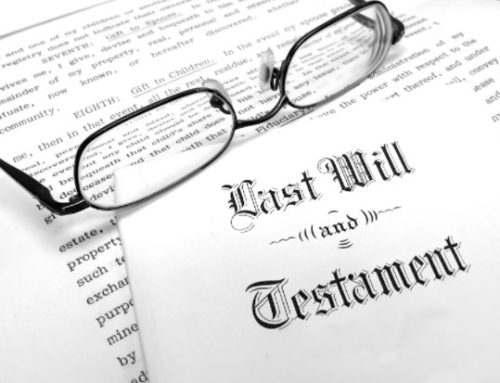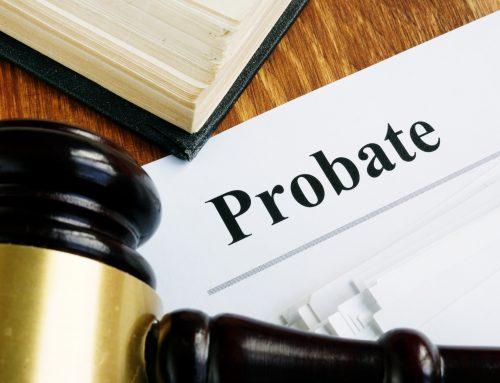When a loved one dies, trying to manage their estate can be a daunting process. If you were named the executor of an estate, you’re probably well aware that this is a grave responsibility. But how does probate work in Indiana, and how can a probate attorney help?
To learn more about the probate process, contact Barnes Cadwell Law today. We can guide you through what could otherwise be a complicated and time-consuming experience.
What Is Probate?
Probate is the court-supervised process through which property and assets are distributed to family members and creditors after someone’s death. Each step of the probate process is undertaken by an administrator (also called an executor or personal representative). An executor is nominated in the deceased’s will or appointed by the court if there is no will.
The executor is given legal authority to gather, appraise, and allocate the estate’s assets to heirs, beneficiaries, and creditors. The executor is also given the authority to pay any debts and taxes.
Since Indiana has not adopted the Uniform Probate Code (UPC), the probate process, especially for smaller estates, is relatively complicated. In Indiana, probate usually takes six months to a year to complete. Of course, it can go on for longer if someone challenges the will or the estate includes unusual assets.
When Is Probate Necessary?
Which assets need to go through probate? Only the assets the deceased person owned in their own name. These assets are called the “probate estate” that can pass on to beneficiaries with the probate court’s oversight.
Probate is not necessary in all cases for all estates. In Indiana, if your estate is “small” or worth less than $50,000, you may be able to avoid probate altogether.
Certain assets will simply pass to heirs and beneficiaries upon the death of the owner. The following assets do not need to go through probate:
- Property held in joint tenancy: Homes, bank accounts, and other assets held by more than one person. When one person dies, the other automatically gains ownership.
- Property held in tenancy by the entirety: Similar to joint tenancy, property owned with a spouse becomes property of the surviving spouse upon death.
- Bank accounts that are payable on death: Includes special accounts set to pay out to a specified beneficiary when the owner dies.
- Property that is transferable on death: These deeds specify ownership transfer to a beneficiary when the original owner dies.
- Assets Registered on Transfer-on-Death Forms: Indiana law allows assets, such as securities and cars, to be passed on to transfer-on-death (TOD) beneficiaries by completing a form.
- Retirement accounts and life insurance: If the account holder named a beneficiary, the funds don’t have to go through probate.
- Living trust assets: Assets that are held in the name of the living trust trustee while the trustee is still alive. In Indiana, these assets will avoid probate if other assets outside the trust exceed the state’s small estate threshold.
Understanding the Indiana Probate Process
If you cannot avoid probate, an administrator will be named to handle the probate process, which usually takes place in the county where the deceased person lived.
The Indiana probate process generally requires the following steps for an administrator to settle an estate:
Getting Started
The administrator initiates probate by requesting the court to officially designate them as executor of the estate. Once named, they will file a petition for probate in the county the deceased lived in at the time of death.
Administering the Estate
Next, the administrator will safeguard, list, and value estate property. This involves opening a bank account, preparing state and federal tax returns, and filing an inventory and appraisal of assets. The administrator of the estate will be issued a document called “letters testamentary,” which will give them the ability to manage funds for the deceased person’s estate. As a personal representative, the administrator will have to correspond with banks, attorneys, and other officials to probate the estate. They will also need to publish a notice in the local newspaper and mail notices to creditors to pay debts.
Closing the Estate
After debts and taxes have been paid and disputes have been settled, the administrator can distribute assets to beneficiaries. If there is a will, the administrator will be responsible for making sure property and assets are designated appropriately. However, if there is no will, property may be distributed to beneficiaries by the court. In the end, the administrator will file a petition to close probate and request the court to release them from executor duties.
Supervised and Unsupervised Administration
The administrator can request supervised or unsupervised administration of the estate. Unsupervised administration is more common and has a lower level of court involvement than supervised administration. It generally requires less time, paperwork, money, and stress to administer and close.
- Courts will allow unsupervised administration if the estate is solvent and the will permits it. It is suitable when no disputes requiring court involvement are likely.
- Supervised administration is appropriate if there is a need for the court to be involved. This might be the case where beneficiaries are disputing or no will exists and the heirs are unknown.
Contact an Indianapolis Probate Attorney Today
A probate attorney can help you understand your responsibilities as executor of an estate, as well as help you through the probate process. For answers to questions like “How does probate work?” and “When is probate necessary?” speak to an Indianapolis probate attorney at Barnes Cadwell Law today. We can help you navigate the system and avoid mistakes that could end up wasting your time and money. Call today to learn more.






